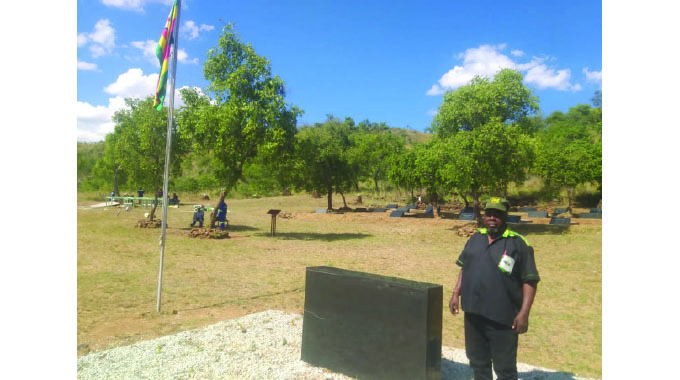Govt must prioritise delivery, development and information


The Government needs to prioritise service delivery. Potholes have become a menace on the country’s roads
Bernard Bwoni The Edge
It is well and fine to create your own little green space, a little paradise for yourself and an oasis in the middle of raging waters but the fact of the matter is that your individual comfort will always be under threat from collective misery.
The Rhodesians did it until cumulative deprivation of the majority dismantled the biased construct.
It is better to create a comfortable space for collective benefit, a place of aesthetics and beauty, a place for everyone to enjoy and be prepared to defend for continued aggregate benefit.
The Government of Zimbabwe has been proactive and progressive in laying the foundations for the country’s reorganisation following years of external and internal obstructions.
The focus has been people-centred policies and that is policies for undivided societal gains.
That is the key to silencing all those perennial naysayers of Government and Government policy through effective implementation and delivery.
The Minister of Information, Media and Broadcasting Services Professor Jonathan Moyo was on point when he recently stressed the importance of service delivery and implementing the objectives of ZIM-ASSET as the key to countering those who had been working clandestinely and in cohort with external elements to unconstitutionally unseat President Mugabe.
That is the only way to upgrade the lives of the ordinary citizens of Zimbabwe and rebuffing those who have been working tirelessly to derail Zimbabwe’s economic revolution.
Zimbabwe, under the astute stewardship of President Mugabe, has weathered the storm and there is clear awareness that the only defence against such attacks and the surest way towards another landslide victory in 2018 is through good public services in place for people.
The Government has continued prioritising civic services, welfare services, human development services and provision of basic minimum services amid very difficult micro and macroeconomic conditions.
This is not rocket science; the people of Zimbabwe have been embracing Government initiatives because they seek to empower and ameliorate citizens’ lives.
The priority has been clean, constant and consistent water supplies, improved sanitation and roads rehabilitation.
New pumps were recently installed at the Morton Jaffray Water Treatment plant and most are beginning to feel the benefits of such service delivery initiatives.
Amid the never ending negative onslaught, the Government has continued to have that bona fide raison d’être to the welfare of the people and the development of Zimbabwe through public service delivery.
The paper that Zim-Asset is written on has to translate into tangible activity on the ground for the benefit of ordinary men and women on the street. Hence the urgent need to harness and involve all stakeholders and the starting point should be the development of partnerships, mobilisation of all civil society groups, the realignment of the frustrating bureaucratic bottlenecks and the use of ICT as a potential tool for effective public service delivery.
There has been a people-centred service delivery approach where the new relationship between the Government and the citizens has become that of provider and recipient of the public service. The 2018 election is safely in the bag once these service delivery strategies go into full swing and people have a clear awareness of their existence. There is need for education and information on these initiatives.
The Government is doing a lot of hard ground work in terms of infrastructure development and delivery of services, yet there is a lack of clarity on such and citizens continue to lament the lack of such because of lack of information.
There are many developments happening in Zimbabwe as we speak but unfortunately these have not been effectively and clearly presented to the public. The citizens of Zimbabwe have basic rights to expect to receive high quality public services and the Government of Zimbabwe does listen to the people on a broad scale, but there is need for the authorities to start narrowing it down to the barebones of people-centredness.
It has to start with listening to the people and modifying services accordingly, to the needs of the people.
The Government as the service provider acts as trouble-shooter and should effectively and timely respond to complaints and continually seek feedback and evaluate own strategies for service provision to continually improve the service being provided.
The citizens of Zimbabwe have to be involved in the monitoring process and these are nitty-gritties of effective public service delivery.
There are some unsustainable inequalities in the country as a whole and a good example is the divide between the northern and southern, low density and high density residential locations which existed before independence and still persist today.
The low density areas seem to enjoy way better services than their high density counterparts who are mostly densely populated and thus in more urgent need of services. If you travel around Glen Lorne, Greendale, Mount Pleasant, Borrowdale and others you find the roads are in better shape than Mbare, Mufakose, Glen Norah, Tafara, Budiriro and others. The low density areas are generally cleaner and there is less dumping in public spaces.
The Government should thus focus on the poor and disadvantaged citizens to the extent of affirmative action and positive discrimination in terms of service delivery in favour of those previously and perpetually marginalised groups. There is need for conscious and deliberately planned outreach to target the more disadvantaged in the cities and rural areas.
The provision of basic services is recognised within the Zimbabwe Constitution and this should be built around high standards of integrity in the country’s institutions. There is need for better and clear information dissemination and the strengthening of the country’s public institutions. Weak public institutions will yield poor public services. What Professor Moyo was alluding to is that the continuous improvement of methods, processes and standards of high quality service delivery should form part of the ruling party’s election campaign.
Bwoni is a political writer and agriculture economist and consultant based in the UK.
bernardbwoni.blogspot.com







Comments